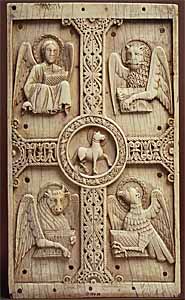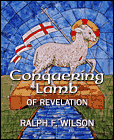Free E-Mail
Bible Studies
Beginning the Journey (for new Christians). en Español
Old Testament
Abraham
Jacob
Moses
Joshua
Gideon
David, Life of
Elijah
Psalms
Solomon
Songs of Ascent (Ps 120-135)
Isaiah
Advent/Messianic Scriptures
Daniel
Rebuild & Renew: Post-Exilic Books
Gospels
Christmas Incarnation
(Mt, Lk)
Sermon on the Mount
(Mt 5-7)
Mark
Luke's
Gospel
John's Gospel
7 Last Words of Christ
Parables
Jesus and the Kingdom
Resurrection
Apostle Peter
Acts
The Early Church
(Acts 1-12)
Apostle Paul
(Acts 12-28)
Paul's Epistles
Christ Powered Life (Rom 5-8)
1 Corinthians
2 Corinthians
Galatians
Ephesians
Vision for Church
(Eph)
Philippians
Colossians,
Philemon
1
& 2 Thessalonians
1 & 2 Timothy,
Titus
General Epistles
Hebrews
James
1 Peter
2 Peter, Jude
1, 2, and 3 John
Revelation
Revelation
Conquering Lamb of Revelation
Topical
Glorious Kingdom, The
Grace
Great Prayers
Holy Spirit, Disciple's Guide
Humility
Lamb of God
Listening for God's Voice
Lord's Supper
Names of God
Names of Jesus
Christian Art
About Us
Podcasts
Contact Us
Dr. Wilson's Books
Donations
Watercolors
Sitemap
Day 13. Sealed with the Name of the Lamb (Revelation 14:1)
 Plaque with Agnus Dei on a Cross between Emblems of the Four Evangelists (1000-1050 AD), ivory, Benevento, south Italy, Metropolitan Museum of Art, New York, 9.25 x 5.4 x 3/8 in. |
Revelation 13 traces the rise of the Antichrist (the beast rising out of the sea) and the False Prophet (the beast rising out of the earth, Revelation 13:11; 16:20). Together they make war on God's people and control world economies, shutting out the believers.
"[The False Prophet] causes all, both small and great, both rich and poor, both free and slave, to be marked on the right hand or the forehead, 17 so that no one can buy or sell unless he has the mark, that is, the name of the beast or the number of its name." (Revelation 13:16-17)
But the command of the False Prophet does not go unchallenged, for in the next chapter we read:
"Then I looked, and behold, on Mount Zion stood the Lamb, and with him 144,000 who had his name and his Father's name written on their foreheads." (Revelation 14:1)
For the next several days we are going to meditate on these 144,000 and their relation to the Lamb. Today we need to consider "Mount Zion," who the 144,000 are, and the name on their foreheads, and then apply that to our lives. Stay with me -- this is complicated.
Mount Zion (Revelation 14:1)
First, let's look at "Mount Zion" in our passage. Originally, Zion is the name of the Jebusite fortress in Jerusalem that David conquers (2 Samuel 5:7, 9). He calls it "the city of David," and moves his capital here from Hebron.
Later, David brings the ark to Zion and places it in a tent he has pitched for it (2 Samuel 6:12, 17) and Solomon builds the temple here.67 So God -- represented by the ark as his throne -- now dwells here. Jerusalem is not only David's capital, it is Yahweh's earthly capital as well.
"Sing praises to the LORD, who sits enthroned in Zion!" (Psalm 9:11a)
"Out of Zion, the perfection of beauty, God shines forth." (Psalm 50:2)
"Lift up your hands to the holy place and bless
the LORD!
May the LORD bless you from Zion." (Psalm 134:2-3a)
In Psalm 48, Jerusalem is called, "the city of our God ... the city of the Great King" (Psalm 48:1-3).
In the Intertestamental Period (or the deuterocanonical period), the 400 years between the Old and New Testaments, Zion emerges in Jewish apocalyptic literature as the eschatological capital from which God will rule in the Last Days. And by New Testament times, Zion has also become a symbol of the redeemed people of God themselves as the residents of the City of God.68
"You have come to Mount Zion and to the city of
the living God,
the heavenly Jerusalem, and to innumerable angels in festal gathering,
and to the assembly of the firstborn who are enrolled in heaven...." (Hebrews
12:22-23a)
Jerusalem is pictured in the Book of Revelation as the city foursquare, a perfect cube 12,000 stadia on each side (about 1,380 miles or 2,220 kilometers), with pearl gates and golden streets (Revelation 21:10-21). This glorious city then descends to earth.
"And I saw the holy city, new Jerusalem,
coming down out of heaven from God,
prepared as a bride adorned for her husband." (Revelation 21:2l; cf. 3:12)
The Holy City is the Bride, the people of the Lamb. So Zion is the ultimate symbol of God being with his people -- Emmanuel (Revelation 21:3).
I don't mean to confuse you -- though I'm sure I have. But by the time we get to Revelation, Zion and Mount Zion do not refer to an ancient Davidic stronghold, nor even an earthly city in Judah, but a heavenly city where God dwells, populated by angels and God's people. So when our passage reads, "Behold, on Mount Zion stood the Lamb," it is not clear whether John is speaking literally or figuratively. I think it's figurative, but we just don't know. But we do know that the Lamb is standing in the presence of God with the people of God.
The 144,000
"Then I looked, and behold, on Mount Zion stood the Lamb, and with him 144,000 who had his name and his Father's name written on their foreheads." (Revelation 14:1)
The Victorious Lamb is standing in Yahweh's capital with the 144,000 (who are mentioned here and in Revelation 7:4-8). Who are they?
We begin by asking: Is 144,000 a literal number? The answer is no. The Jehovah's Witnesses once thought that their movement constituted the 144,000 (taken literally) -- until their movement outgrew the number. This is clearly a figurative number.
12 x 12 x 1,000
Twelve, of course, represents the number of tribes of Israel and later the twelve apostles (hence, 12 x 12). One thousand is the way the Greek language expressed a "very large number," much as we might say, "I wouldn't do that for a million dollars." Specifically, the 144,000 are said to be 12,000 from every tribe of the sons of Israel. Some see them as Jewish. I see them as representing the whole people of God, the true Israel throughout the ages.69
In Revelation 14:1-5 we are told that they have "been redeemed from the earth." Moreover, they are male virgins who follow the Lamb, the firstfruits, truthful, and blameless. We'll talk more about what this might mean in our devotions over the next couple of days.
Sealed (Revelation 7:4)
We need to add one more piece to the puzzle to understand our passage. In the previous chapter, we read that the False Prophet has marked everyone else with the mark of the beast on their right hand or forehead, enabling them to buy or sell in the Antichrist's economy (Revelation 13:16-17).
By contrast, before more plagues are sent upon the earth, God's people have been protected; they have been "sealed" (Revelation 7:4). "Sealed" is sphragizō, which refers to placing an official seal on something, "to mark with a seal as a means of identification, mark, seal." This mark of ownership indicates that the protection of the owner extends to the person so sealed.70 So the plagues of Revelation harm "only those people who do not have the seal of God on their foreheads" (Revelation 9:4).
So as we come to our passage in Revelation 14:1, the Antichrist's people bear the mark of the beast; the Lamb's people bear God's seal.
The Names of the Lamb and the Father on Their Foreheads (Revelation 14:1)
Now our passage begins to make some sense. These 144,000 have "[the Lamb's] name and his Father's name written on their foreheads" (Revelation 14:1b).
The Antichrist marks his people with the number of his name (666; Revelation 13:8). By contrast, we disciples have been sealed by the Holy Spirit. It is our mark, our identifier. We bear upon our faces the name of the Father and of the Lamb -- the Lord Jesus the Messiah, King of kings and Lord of Lords! (Revelation 17:14). We are his!
Is it a visible mark? Probably not. But it is a clear spiritual identification. Don't touch this one. He or she is mine! Paul writes:
"In him you also ... were sealed with the promised Holy Spirit." (Ephesians 1:13)
"And do not grieve the Holy Spirit of God,
by whom you were sealed for the day of redemption." (Ephesians 4:30)
"And it is God who establishes us with you in
Christ,
and has anointed us,
and who has also put his seal on us
and given us his Spirit in our hearts as a guarantee." (2 Corinthians 1:21-22)
 Available in PDF, and Kindle formats, |
Rejoice, believer, that you have been bought with a price -- the precious blood of the Lamb -- and are marked with his mark -- his name upon your forehead. You stand with this Lamb on Mount Zion, free and powerful in him as he wraps up his plan for our world. Praise God!
Prayer
Father, thank you for putting the Lamb's name upon us, sealing us forever by your Holy Spirit as yours -- and yours only! Thank you for counting us so valuable that you purchased us by the precious blood of the Lamb and then protect us until that final Day. Thank you! In Jesus' name, we pray. Amen.
Day 13 Meditation (Revelation 14:1). What is the
significance of the Lamb standing on Mount Zion? Who are these 144,000 people
with him? What is the significance of the Lamb's and the Father's names written
on their foreheads?
https://www.joyfulheart.com/forums/topic/1887-day-13-sealed/
Endnotes
(References and Abbreviations)
[67] David purchases the temple site from Araunah the Jebusite. Araunah's threshing floor is on Mount Moriah, apparently a hill north of, and somewhat higher than, the original Jebusite fortress of Zion (2 Samuel 24:16-25; 2 Chronicles 3:1; Genesis 22).
[68] More detail may be found in: R. A. Batey, "Jerusalem," Dictionary of New Testament Background (DLNT; InterVarsity, 2000); H. A. Thomas, "Zion," Dictionary of the Old Testament Prophets (DOTP; InterVarsity Press, 2012), pp. 907-913; S. L. Klouda, "Zion," Dictionary of Old Testament: Wisdom, Poetry, Writings (DOTWPW; InterVarsity, 2008), pp. 936-941. C. C. Newman, "Jerusalem, Zion, Holy City," Dictionary of the Later New Testament and Its Developments (DLNT; InverVaristy, 1997), pp. 561-565. Ladd asserts, "The earthly Zion or Jerusalem is constantly pictured in the Old Testament as the seat of God's rule on earth and the center of his final victory..." (Revelation, p. 189).
[69] So C. K. Beale, Revelation, p. 733.
[70] Sphragizō, BDAG 980, 3.
Copyright © 2025, Ralph F. Wilson. <pastor![]() joyfulheart.com> All rights reserved. A single copy of this article is free. Do not put this on a website. See legal, copyright, and reprint information.
joyfulheart.com> All rights reserved. A single copy of this article is free. Do not put this on a website. See legal, copyright, and reprint information.

|

|
In-depth Bible study books
You can purchase one of Dr. Wilson's complete Bible studies in PDF, Kindle, or paperback format -- currently 48 books in the JesusWalk Bible Study Series.
Old Testament- Abraham, Faith of
- Jacob, Life of
- Moses the Reluctant Leader
- Joshua
- Gideon
- David, Life of
- Elijah
- Psalms
- Solomon
- Songs of Ascent (Psalms 120-134)
- Isaiah
- 28 Advent Scriptures (Messianic)
- Daniel
- Rebuild & Renew: Post-Exilic Books
Gospels
- Christmas Incarnation (Mt, Lk)
- Sermon on the Mount (Mt 5-7)
- Luke's Gospel
- John's Gospel
- Seven Last Words of Christ
- Parables
- Jesus and the Kingdom of God
- Resurrection and Easter Faith
- Apostle Peter
Acts
Pauline Epistles
- Romans 5-8 (Christ-Powered Life)
- 1 Corinthians
- 2 Corinthians
- Galatians
- Ephesians
- Philippians
- Colossians, Philemon
- 1 & 2 Thessalonians
- 1 &2 Timothy, Titus
General Epistles
Revelation
Topical
